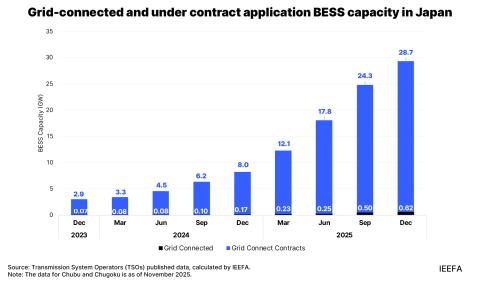New incentives brighten Turkey’s rooftop solar sector
Download Full Report
Key Findings
To date, Turkey has more than 5 gigawatts (GW) of solar capacity installed, mostly under 1 MW, ground-mounted solar farms. A recent review estimated rooftop solar capacity in Turkey at 200 megawatts (MW) in 2017, with a market potential of 4 GW.
Turkey’s new net metering program marks a significant and welcome step forward in developing its residential solar market, further cost-effective incentives can drive faster household adoption in the near term.
Executive Summary
Rooftop solar power has been proven worldwide as a cheap, local source of electricity, which empowers households to take control of their energy supply. By driving household investment in the energy system, it can also be a cost-effective way for countries to reduce pressure on scarce public resources. As a local power supply at the point of demand, residential solar can help avoid network losses, and thus defer wider electricity supply investments. And as an indigenous source of energy, it is especially helpful for countries that depend on energy imports.
All these motives exist in the Turkey context, where a recent economic slowdown has reduced the availability of public funds for energy sector investment, and depreciation of the currency has increased the cost of hard coal imports, jeopardising a previous pipeline of new coal-fired power plants. What is more, Turkey has among the best solar resources in Europe, far superior to market leaders such as Britain and Germany.
In May, Turkey introduced new incentives for rooftop solar power, including a net metering scheme where homeowners receive a monthly energy credit for solar exports to the grid, which they can use to offset their electricity bill. The new programme replaces a previous, ineffective net metering scheme, and complements feed-in tariffs that ended up benefiting much larger installations than solar rooftops for individual consumers. In other words, the new approach can mark the beginning of a largescale, rooftop solar market in Turkey.
In this report, we modelled the payback period for rooftop solar power, based on assumptions around these new incentives, as well as household energy use, the installed cost of solar PV, and Turkey’s solar resources. We showed how the payback period changes through 2030 based on assumptions around energy price inflation, and falling solar panel costs. And we investigated the impact of a range of additional policy measures to drive faster uptake of rooftop solar power in Turkey.
Main Findings:
- The new monthly net metering incentives significantly reduce solar payback periods. Before the introduction of new incentives this year, we calculate that residential solar PV in Turkey had a payback period of 16 years. The new incentives increase payments for exports of solar power to the grid. This reduces payback periods by more than a quarter, to 11 years for new projects today, seven years in 2025, and 4.5 years in 2030. While beneficial, however, a 11-year payback period will still only attract highly motivated households.
- We investigated the combined impact of a range of additional measures to reduce payback periods further in Turkey (see Figure 1). These measures include: eliminating Turkey’s 18% value added tax (VAT) on solar installations; removing the fixed government rooftop solar administration fee (of about 5,000 TRY + VAT); subsidising the cost of borrowing, to 5% from approximately 12% (in Turkey’s recently highly inflationary economy); and increasing the net metering incentive to feed-in tariff levels seen in Germany. These combined measures reduce payback periods to under seven years today, and two years in 2030. A seven-year payback period should be sufficiently low to attract more mainstream interest.
Recommendations
Turkey’s government has recognised the potential of the country’s excellent solar resources, earlier this year adopting new monthly net metering incentives that reward households for generating and consuming their own solar power. We recommend that Turkey now takes further steps with cost-effective policies that can bring rooftop solar power within reach of mainstream customers.
These steps are:
- Eliminate the VAT on solar systems to reduce customer’s capital costs.
- Remove the fixed fee for obtaining official government approval.
- Subsidise the cost of household borrowing to install solar panels. This could be achieved, for example, via assistance from multilateral development banks, such as the European Bank for Reconstruction and Development, which says it has a goal in Turkey to “accelerate the shift to the green economy.” Alternatively, borrowing for a solar installation could be attached to the mortgage for a property, thus reducing the lending risk and interest rate.
- Raise the level of support being offered under the net metering scheme in line with rates being offered in Western Europe.
Press release: Surging energy prices accelerating pace of wind, solar and battery adoption
Please view full report PDF for references and sources.















